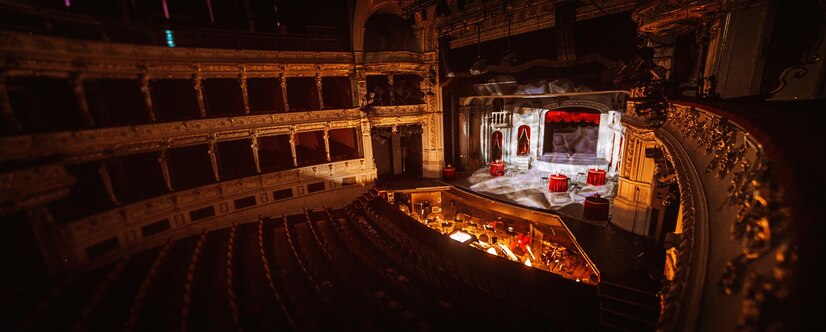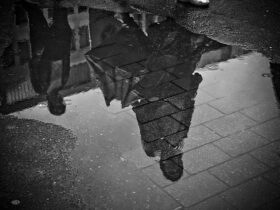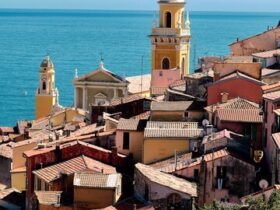Theatres Cultural Guide: Arezzo’s Artistic Heartbeat
Welcome to Arezzo, a Tuscan treasure trove of cultural heritage, where the performing arts are as vibrant as the region’s famed rolling hills and vineyards. For those with a penchant for drama, music, and historical architecture, Arezzo’s theatres offer a cultural guide to the soul of this Italian gem. In this article, we will explore the rich tapestry of Arezzo’s theatrical scene, from ancient origins to contemporary stages, and how they continue to shape the cultural identity of this enchanting city.
Summary of Arezzo’s Theatrical Landscape
In this comprehensive guide, we will delve into the following aspects of Arezzo’s theatre culture:
- The Historical Significance of Arezzo’s Theatres
- Petrarca Theatre: A Case Study
- The Contemporary Theatrical Scene in Arezzo
- Annual Festivals and Events: Celebrating Arezzo’s Theatrical Heritage
- Educational Opportunities in Arezzo’s Theatres
- Navigating Arezzo’s Theatres: Tips for Visitors
By the end of this article, you will have a deeper understanding of the theatres cultural guide Arezzo offers to enthusiasts and newcomers alike.
The Historical Significance of Arezzo’s Theatres
The history of theatre in Arezzo is as old as the cobblestone streets that wind through the city. The tradition of theatrical performances can be traced back to the Etruscans, who inhabited the area before the Romans. However, it was during the Renaissance that Arezzo’s theatrical culture truly began to flourish. This period saw the rise of dramatic societies and the construction of some of the city’s most iconic theatres.
One cannot discuss the theatres cultural guide Arezzo without mentioning the influence of the Medici family. Their patronage of the arts led to a surge in theatrical productions and the establishment of permanent theatre spaces. These historical venues have been meticulously preserved, allowing visitors to step back in time and experience the grandeur of Arezzo’s past.
Petrarca Theatre: A Case Study
The Petrarca Theatre stands as a testament to Arezzo’s rich theatrical heritage. Inaugurated in the late 19th century, it was named after the famous poet Francesco Petrarca, who spent part of his life in Arezzo. The theatre’s architecture is a blend of neoclassical and Art Nouveau styles, with a stunning façade that beckons culture seekers.
Inside, the Petrarca Theatre boasts a horseshoe-shaped auditorium adorned with golden stuccoes and frescoes that depict scenes from Petrarca’s works. It has hosted a myriad of performances, from operas to plays, and continues to be a central figure in Arezzo’s cultural life. The theatre’s programming reflects its commitment to both classical and contemporary works, making it a focal point for the theatres cultural guide Arezzo provides.
The Contemporary Theatrical Scene in Arezzo
While Arezzo cherishes its historical theatres, the city is also home to a dynamic contemporary theatrical scene. Modern venues and experimental theatre companies offer a fresh take on the performing arts, often pushing the boundaries of traditional storytelling. These contemporary spaces serve as incubators for local talent and provide a platform for international artists.
One such example is the Centro Nazionale di Produzione, a hub for avant-garde performances and innovative theatrical research. This center not only stages productions but also offers workshops and masterclasses, contributing to the ongoing evolution of Arezzo’s theatre culture.
Annual Festivals and Events: Celebrating Arezzo’s Theatrical Heritage
Arezzo’s calendar is dotted with festivals and events that celebrate its theatrical heritage. The most notable is the annual Arezzo Theatre Festival, which attracts performers and audiences from across the globe. This event showcases a diverse range of genres, from classical dramas to contemporary dance, and serves as a melting pot of cultural exchange.
Another highlight is the Estate Aretina, a summer festival that transforms the city’s historic sites into stages for live performances. These events not only entertain but also educate, as they often include post-show discussions and meet-and-greets with the artists.
Educational Opportunities in Arezzo’s Theatres
For those looking to delve deeper into the world of theatre, Arezzo offers numerous educational opportunities. Theatre schools and workshops are available for all ages and skill levels, from amateur enthusiasts to aspiring professionals. These programs focus on various aspects of theatre production, including acting, directing, set design, and more.
Moreover, many of Arezzo’s theatres collaborate with academic institutions to provide internships and practical experiences for students. This symbiotic relationship between education and practice is a cornerstone of the city’s commitment to nurturing the next generation of theatre artists.
Navigating Arezzo’s Theatres: Tips for Visitors
For those planning to explore Arezzo’s theatrical offerings, here are some tips to enhance your experience:
- Check the performance schedules in advance to ensure you don’t miss out on any must-see productions.
- Many theatres offer guided tours, providing insights into the history and architecture of these cultural landmarks.
- Consider purchasing a theatre pass, which may offer discounts and priority seating for multiple performances.
- Don’t hesitate to engage with locals and fellow theatre-goers; Arezzo’s community is known for its warmth and hospitality.
For more information on Tuscany activities and cultural exploration, visit our category page.
Conclusion
In conclusion, the theatres cultural guide Arezzo offers is a rich and diverse journey through time and creativity. From the historical significance of its ancient stages to the innovative spirit of contemporary venues, Arezzo’s theatres are a testament to the city’s enduring love affair with the performing arts. Whether you are a seasoned theatre aficionado or a curious traveler, Arezzo’s theatrical landscape promises an unforgettable cultural experience.
For further reading on the history and significance of Italian theatres, consider exploring external resources such as scholarly articles and books on the subject. These can provide a broader context and deeper appreciation for the role of theatre in Italian culture.
FAQ Section
What is the best time of year to visit Arezzo for theatre-related activities?
The best time to visit Arezzo for theatre-related activities is during the summer months when festivals like Estate Aretina take place, offering a plethora of performances in unique settings.
Are there any English-language performances or subtitled shows in Arezzo’s theatres?
While most performances are in Italian, some theatres may offer English-language productions or subtitled shows, especially during international festivals.
Can I purchase theatre tickets online?
Yes, most theatres in Arezzo offer the convenience of online ticket purchases. It’s advisable to check individual theatre websites for booking options.
Is Arezzo’s theatre scene suitable for families with children?
Yes, Arezzo’s theatre scene includes family-friendly performances and workshops designed for children, making it an inclusive cultural destination for visitors of all ages.
Are there any opportunities for visitors to participate in theatre workshops in Arezzo?
Yes, visitors can often find theatre workshops and masterclasses in Arezzo, which are open to the public and cater to various levels of experience.













